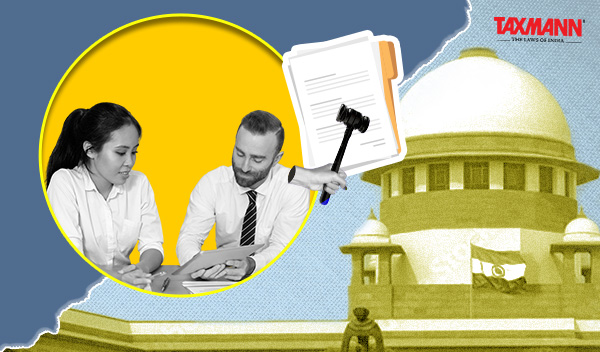
Case Details: Equity Intelligence Aif Trust vs. Central Board of Direct Taxes - [2025] 176 taxmann.com 903 (Delhi)
Judiciary and Counsel Details
- GDEVENDER KUMAR UPADHYAY, CJ. and TUSHAR RAO GEDELA, J.
- S. Ganesh, Ms. Kavita Jha, Sr. Advs., Vaibhav and Himanshu Aggarwal,
- Advs. for the Petitioner. Puneet Rai, Sr. Standing Counsel,
- Ashvini Kumar and Rishabh Nangia, Advs. for the Respondent.
Fact of the Case
The assessee, an Alternative Investment Fund (AIF), filed the instant writ petition, seeking to declare the Circular no. 13/2014 dated 28.07.2014 as ultra vires the provisions of sections 160 and 164 and further seeks to quash the order passed by the Board for Advance Rulings (BAR) under section 245R(4).
BAR, relying upon circular no. 13/2014, holds that if the names of the beneficiaries are not set out in the original Trust Deed, then such Trust would be treated as “indeterminate” and resultantly be subject to Maximum Marginal Rate (MMR) under the provisions of section 164.
HC Held
The High Court held that the CBDT’s clarification that the entire income of the fund would be taxed at the maximum marginal rate if the trust deed does not name the investors or specify their beneficial interests is contrary to the well-settled principles of law.
The Court applied the doctrine that the law does not compel the doing of impossibilities, holding that Category III AIFs cannot be mandated to name beneficiaries in their original Trust Deeds. This is due to SEBI regulations prohibiting the acceptance of investments or identification of specific beneficiaries prior to SEBI registration, which itself requires prior Trust Deed registration.
A Category III AIF cannot comply with the provisions of Section 164 and the SEBI Act simultaneously. Section 164 mandates the necessary mentioning of the names of the investors or their beneficial interests in the original Trust Deed, and the SEBI Act and Regulations prohibit the same. Thus, it would lead to an anomalous and incongruous situation.
The CBDT’s clarification was issued in response to a request for a ruling, and as per Para 6 of the circular, it would not be operative in the jurisdiction of a high court that has taken or takes a contrary decision on the issue, which is baffling and contrary to the well-settled judicial principles of law.
An issue of law settled by a Constitutional Court, neither challenged nor set aside by a higher Constitutional Court, would be binding upon the Revenue authorities all over the country and cannot be implemented State-specific or area-specific. Moreover, it appears that the said paragraph has been deliberately inserted keeping in view the judgments in the case of India Advantage Fund [2017] 89 taxmann.com 209 and TVS Shriram Growth Fund [2020] 121 taxmann.com 238.
Consequently, the writ petition was allowed, the order of the Board for Advance Rulings was quashed, and simultaneously the clarification contained in CBDT Circular No. 13/2014 was directed to be read down to conform to the above analysis and conclusion.
List of Cases Reviewed
- CIT v. TVS Shriram Growth Fund [2020] 121 taxmann.com 238/429 ITR 440/[2021] 277 Taxman 41 (Madras) and CIT v. India Advantage Fund-VII [2017] 78 taxmann.com 301/392 ITR 209/246 Taxman 149 (Karnataka) [Para 44] – followed
List of Cases Referred to
- Raj Kumar Dey v. Tarapada Dey (1987) 4 SCC 398 (para 13),
- Cochin State Power & Light Corporation v. State of Kerala 1965 SCC OnLine SC 29 (para 13),
- CIT v. P. Sekar Trust [2009] 180 Taxman 277/321 ITR 305 (Madras) (para 15),
- CIT v. Tamilnadu Urban Development Fund [2019] 104 taxmann.com 361/263 Taxman 318 (Madras) (para 15),
- CIT v. TVS Shriram Growth Fund [2020] 121 taxmann.com 238/429 ITR 440/[2021] 277 Taxman 41 (Madras) (para 15),
- CIT v. India Advantage Fund-VII [2017] 78 taxmann.com 301/392 ITR 209/246 Taxman 149 (Karnataka) (para 15) and
- Genpact India (P.) Ltd. v. Dy. CIT [2019] 111 taxmann.com 402/419 ITR 440/[2020] 268 Taxman 299 (SC) (para 18).
The post HC | AIFs Can’t Name Investors in Trust Deed Due to SEBI Norms appeared first on Taxmann Blog.
